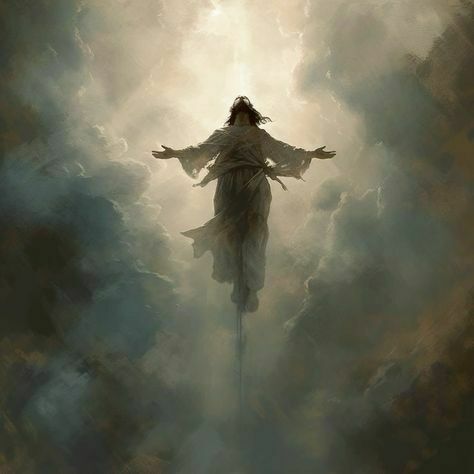[gopher://gopher.floodgap.com/0/feeds/voaheadlines/2024/Oct/13/https---www.voanews.com-a-ukrainian-move-to-ban-moscow-linked-church-stirs-anger-in-russia-7819838.html](gopher://gopher.floodgap.com/0/feeds/voaheadlines/2024/Oct/13/https---www.voanews.com-a-ukrainian-move-to-ban-moscow-linked-church-stirs-anger-in-russia-7819838.html)
Originally posted by the Voice of America.
Voice of America content is produced by the Voice of America,
a United States federal government-sponsored entity, and is in
the public domain.
Ukrainian move to ban Moscow-linked church stirs anger in Russia
by Reuters
moscow --
Speaking behind the thick white walls of Moscow's ancient Danilov
Monastery, Archpriest Igor Yakimchuk is adamant: People must not be
forbidden to pray in their chosen branch of Eastern Orthodox
Christianity.
He speaks calmly, but Yakimchuk is one of many Orthodox Christians in
Russia who are angry about a law passed by Kyiv in August that targets
a Russia-linked Orthodox church that long dominated religious life in
Ukraine.
President Volodymyr Zelenskyy's administration accuses the Ukrainian
Orthodox Church (UOC) of spreading pro-Russian propaganda in time of
war and of housing spies, charges it denies.
Under the law, the Russian Orthodox Church itself was banned on
Ukrainian territory and a government commission was tasked with
compiling a list of "affiliated" organizations - expected to include
the UOC - whose activities will be outlawed, too.
"In the 21st century, in the center of Europe, millions of people are
being deprived of their basic civil rights," Yakimchuk, wearing a black
cassock and a large Orthodox cross around his neck, told Reuters in an
interview.
"Because what does it mean to ban a church, which is the largest
religious denomination in Ukraine, no matter how much the current
Ukrainian authorities would like to downplay its scale? Everyone
understands perfectly well that it is impossible to forbid people to
pray."
Whether the UOC retains the following it once did is disputed. An
independent Orthodox Church of Ukraine (OCU) that was set up after
Russia annexed Crimea in 2014 to be fully independent of Moscow has
seen its popularity grow rapidly since President Vladimir Putin sent
his forces into Ukraine in 2022.
Ukrainian authorities say the UOC is fair game. They have launched
dozens of criminal proceedings, including treason charges, against
dozens of its clergy. At least one has been sent to Russia as part of a
prisoner swap.
Church divided
However, Yakimchuk's denunciation of what he calls "absolute
lawlessness" in Ukraine is a reflection of how the nearly 32-month war
-- which Moscow calls a "special military operation" - has divided
Orthodox hierarchies in the two countries, even though they all adhere
to Eastern Orthodox Christianity.
The UOC tried to distance itself from Moscow once the war was underway,
condemning Russia's actions and removing references to the "Moscow
Patriarchate" from its name.
But those attempts angered clerics in Moscow, who have thrown their
weight behind what they cast as Russia's "holy war" in Ukraine against
the expanding influence of what they see as a decadent, godless West.
The UOC's efforts also failed to allay Kyiv's concerns about the
church's activities and loyalties.
The process of shutting down UOC operations in Ukraine - something one
Ukrainian lawmaker called "cleansing" - is likely to be lengthy and
involve court battles, but the church's days seem numbered. Some
opinion polls suggest more than 80% of Ukrainians do not trust the UOC.
The Kremlin, which has forged close ties with the Russian Orthodox
Church, has described Ukraine's new law as "an open attack on freedom
of religion."
One Russian Orthodox priest in St. Petersburg, Leonid Trofimuk, branded
Ukraine's action as "Satanism" and compared it to Soviet-era state
repression of religion.
"The 20th century is behind us," he said. "We saw the persecution of
the church at that time, but we didn't think that there would be this
kind of persecution that is going on now in Ukraine."
Ordinary Russian churchgoers interviewed by Reuters also expressed
concern.
"There is a kind of total politicization of matters of faith going on,"
said Sergei, a St. Petersburg resident. "I would like common sense to
prevail and the international community to finally pay attention."
His criticism of Kyiv's moves was echoed by churchgoers leaving a
golden onion-domed church more than 900 miles (1,448 km) away to the
south, in Mariupol, a Ukrainian port city seized by Russian forces in
2022 after a long siege.
"This is wrong - you shouldn't do this kind of thing," said Olga, a
Mariupol resident who was wearing a headscarf. "How can he [Zelenskyy]
interfere with faith in God? This is not a matter for the state."
Reuters is a news agency founded in 1851 and owned by the Thomson
Reuters Corporation based in Toronto, Canada. One of the world's
largest wire services, it provides financial news as well as
international coverage in over 16 languages to more than 1000
newspapers and 750 broadcasters around the globe.
#religion #russian-orthodox #russian-orthodox-church #christianity #church #freedom-of-religion #russia #ukraine #war #putin #zelenskyy #separation-of-church-and-state #special-military-operation #orthodox-church-of-ukraine









